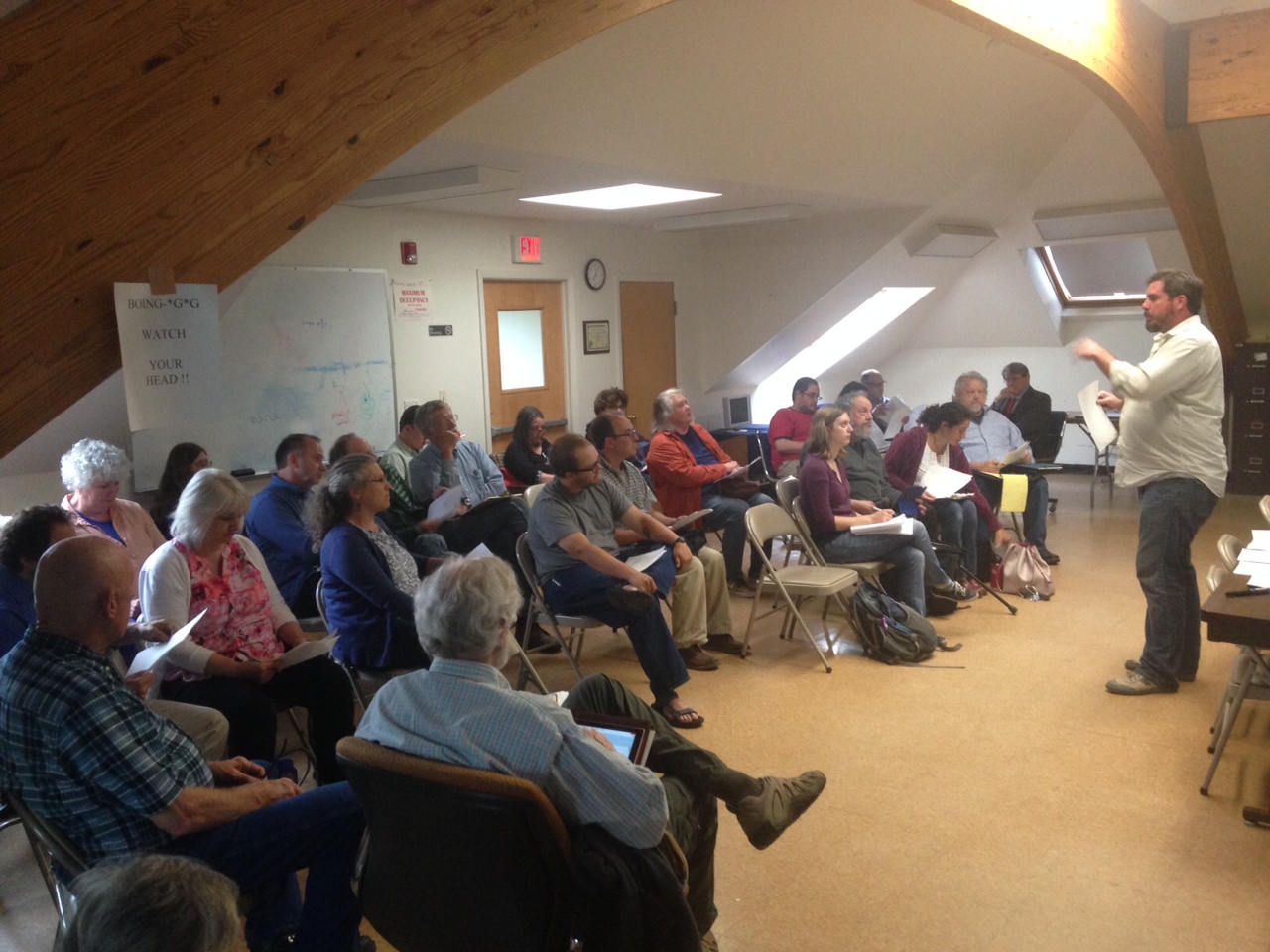Every time I drive down to New York City, the village of New Paltz and the Wallkill River show up on my GPS. Along highway I-87, you can see marvelous mountain views and amazing apple trees. I always think that I should tour and try the hiking trails in this region on a Sunday, but I never manage to make that happen.
Not until recently did I realize that my colleague from graduate school, Jason West, recently served as the mayor of New Paltz for two terms. Then, in early 2015, Jason formed the Wallkill River Watershed Alliance (WRWA), an environmental organization that focuses on finding solutions to preserve the Wallkill River in New Paltz region. And now he is studying environmental policy at Bard College Center for Environmental Policy.
What brought about that transition? What are the WRWA’s intentions to cure Wallkill River? Why the Wallkill River? How did Jason’s leadership skills help him as the WRWA’s Executive Director? With those questions in mind, I spoke with Jason to find out more about his views on leadership in local communities.
The Wallkill River Watershed Alliance (WRWA)
“I’ve always wanted to swim in that river,” says Jason, “but the Wallkill has been abandoned, and no one knows what’s going on in it.” At the end of his second term as mayor, Jason and a group of concerned citizens agreed to form a permanent organization dedicated to restoring the Wallkill watershed: the WRWA.
“There were dozen projects on my desk during my last term of mayor, and the one in particular that interested me was the Wallkill River, ” says Jason. “It was the biggest problem in my field of vision. So I gathered everyone who knows a little bit about the Wallkill River, and formed WRWA.””
The WRWA created four teams to investigate the river:
| The Boat Brigade Team | The Science Team | The Outreach Team | The Policy Team |
| 1. organizes public outings on the Wallkill in both Orange and Ulster Counties 2. monitors the river for discharges, potential algae blooms, and storm water infrastructure. |
1. samples and analyses water 2. creates research plans to improve understanding of water quality issues in the river. |
1. connects WRWA with the public 2. builds public awareness of Wallkill watershed conservation. |
1. develops legislative and policy solutions to problems in the watershed 2. works with local municipalities to implement solutions |

The WRWA’s ultimate goal is simple: “We want a Wallkill one can swim in, a Wallkill one can fish, and a Wallkill free of pollution.”
The Role of Leadership
Jason’s view towards leadership is different. “One person calling the shots is not a good idea.” Jason believes that distributive leadership is the right definition of leadership. In Jason’s mind, delegating power and authority as much as possible is one of the healthiest thing leaders can do. A leader’s job is to make more leaders.
In other words, leadership organizes your way out of the job/position. In the WRWA, Jason believes that he is not the only leader of the organization. All the volunteers, the chairs of the investigation teams, and the participants are leaders. Jason sees his role as helping others develop leadership in the WRWA.
Taking the follower’s role is also essential for being a leader. “You can’t have leaders without followers.” A good leader will not always take the lead role in every group or meeting. The art of transforming followers into leaders or vice verse is staying engaged and active.
Jason also developed the WRWA to become an organizational leader in conserving the Wallkill River. The tactics were to build up local reputations and spread organizational values to the public. Notice that the WRWA is only 2 years old, and it is now the “go-to people for the Wallkill River.”

Current and Future Challenges
“In the next five years, my biggest hope is that our research project gets funded somewhere so that we know what is going on in the Wallkill.” Getting the pollutants out is the eventual goal, even though it might take 50 or 100 years. Jason is optimistic about the future, but the WRWA has to overcome some obstacles first.
The biggest challenge for the WRWA is funding. Currently, donations are limited and most of the WRWA’s work is voluntary. Staff and volunteers use their spare time to support the organization. If you want to swim and fish the Wallkill River in the future, join the WRWA today and show some support!

